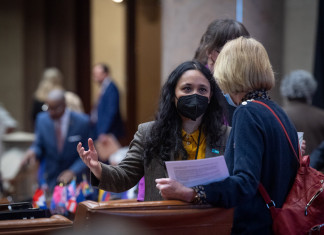Despite concerns raised by the Board of Education, a PILOT agreement between the school district and James L. Taylor Manufacturing was approved at the April 24 BOE meeting.
The PILOT, or payment in lieu of taxes, must be approved by all three relevant taxing authorities: Dutchess County, Town of Poughkeepsie (where the company is located), and Hyde Park School District. Town of Poughkeepsie passed its resolution granting the PILOT in March on the condition that the school district also approve a PILOT agreement. The town’s agreement will freeze the company’s taxes for the next 10 years at $12,912.60.
The district’s agreement splits the 10 year period into two segments: the first five years, the school taxes for the property would be frozen at the 2014-15 level of $32,583, based on the property’s $1,450,000 current assessed value.
The second five years, the school taxes would be based on the 2020 assessed value and the current tax rate for each year, but with a twist: the difference between $1,450,000 and the 2020 assessed value will be taxed at 20 percent the first year, 40 percent the second, and so on until in year 10 the full 2020 value is reached.
Taylor Manufacturing, in business in the county for 103 years, designs and builds woodworking machinery for building windows and doors. The new site is at 130 Salt Point Turnpike and used to house the Fargo Manufacturing Company.
In December 2013 Dutchess County agreed to purchase for $1.42 million Taylor’s current 4.6 acre facility in the City of Poughkeepsie with plans to possibly use the land for jail expansion.
Ron Hicks, the county’s deputy commissioner for strategic planning and economic development, told the board at the meeting that the PILOT would create stability for the company and the district.
Still, some board members took issue with the proposal.
Trustee Perry Sheldon voiced his concerns for taxpayers. “I don’t want to come across as anti-business, but there are a lot of residential homeowners who will have to pick up the slack,” he said, adding, “Are we going to end up with a snowball effect where other companies potentially move down the street and get tax relief?”
Trustee Steven Mittermaier said he felt the process had been rushed. “This is not a typical thing a PILOT is called for,” he said, noting that a PILOT is given to encourage a new business or to create a tax revenue opportunity. Mittermaier noted, however, that if the board did not approve the PILOT, the IDA would still have the power to impose it.
In the end, the proposal passed 4-1, with Perry Sheldon voting against the proposal and two members, Glenn Watson and board president Douglas Hieter, absent.







Facebook Comments